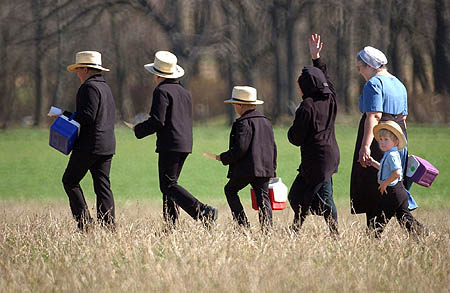For your work to be fulfilling, it should further goals that mean something to you.
Of course, goals that are important to you have everything to do with your values. Do you want to be more generous to others, more productive, more creative? Is your work goal to become richer, improve your status, give your family a better life, or heal the world?
You may want all of these things, but some of them you want more than others. Personal ethics ranks what is most important to you, so that you are able make decisions with real consequences even when your values are competing with one another.
In several posts, I’ve argued that it’s essential to develop your ethical decision-making skills before you have to use them (e.g., posts on preparation for life and work in school and how to respond to child abuse). It’s far more difficult to learn how to weigh your values and act upon them when you’re facing hard choices, under pressure.
One way is to have conversations that reproduce what some families used to have around the dinner table: regular talk about morally ambiguous situations that arise everyday, and how your personal values would lead you to respond to them.
For some, religion also provided a regular framework for considering how values should play out in our lives, although for many of us this is no longer true. But the line between being religious and non-religious is rarely a bright one. Some of us believe more during the holidays, around birth, illness, or death, or during transitions in our lives. Looking at it this way, many of us are still tied (at least somewhat) to a community of shared values that enables our decision-making.
On the other hand, when you cut your ties to a believing community altogether, where does that leave you?
This past week, there was an extraordinary article by Hanna Pylvainen, reacting to a new reality show about a group of Amish young people “as they forgo horses and buggies for New York City’s taxis and subways.” The show follows in the wake of earlier programs like “Jesus Camp” and “Sister Wives” that aimed to shock, mock, and entertain a “more enlightened” audience about the oppression of religion. The article’s aim was not to provide grist for that mill, but to give voice to what these young people had given up when they left a community of shared values.
The author herself had left a fundamentalist community. As a child, she chaffed against its rules and when she could leave, she did so. She’s now recalling the “comfort” she had once gained from being “unshakably tied” to “these people.”
In leaving the church when I was in college, I soon saw I had not stepped into anything else. My admittance into a dubious form of atheism merited no special membership. Atheism seemed, if anything, a community that eschewed community, that strove to preserve the strength of the individual. Thus I clung to anything that might provide stability—a boyfriend, school friends, professors. But these relationships, good as some were, were largely transient—friendships that swelled and faded in response to the changing mileage between us.
This isn’t to say the world has not been kind to me in its own fashion, that I have not found my own freedom valuable—but it is a lonely place, bound to nothing but what I bind myself to. And I find myself worrying, always, that these ties will not be lasting enough. (emphasis added)
To put it simply, Hannah Pylvainen’s experience made her sad for the Amish boys and girls in the new TV show.
Communities where there are shared values about what to do and how to live come in different colors and flavors, in religious as well as non-religious versions. At their best, they are extensions of those dinner table conversations described above.
When you bring your values into your work, the support of a community that shares your values where you work, play and give thanks can mean—quite simply—everything.
If you are still connected to a community like this, appreciate what it is giving you.
If you are not, think seriously about building one around the values that you have brought into your work.


HowԀy! This post could not be written much better!
Looking at this post reminds me of my previous roommate!
He constantly kept preaching about this. I’ll foгward this article to
him. Ϝairly certain he’s going to have a great rеad. I
appreciate you for sharing!